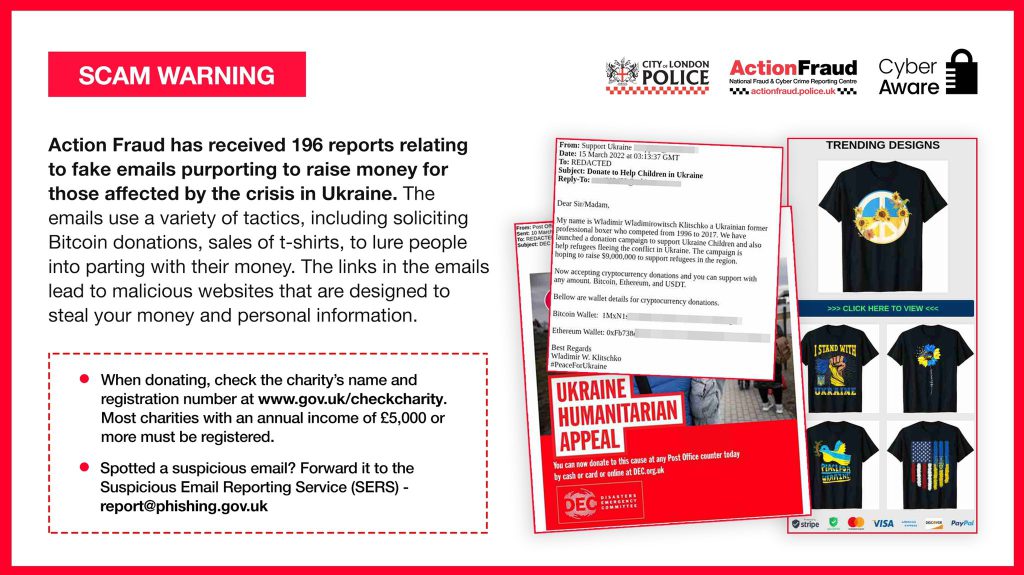The biggest scams of the year (so far)!

According to Barclays, scams increased by 66% during the height of the pandemic. Which! reported that, between April 2020 and March 2021, there were 413,553 reports of cybercrime to Action Fraud, an increase in 33% on the previous year, and 45 million people were targeted by scam calls or texts. Additionally, one in five people aged 16 to 34 were scammed via phone or social media. Compare this to 4% of those aged 55 and over. However, those aged 70 – 89 are hit with the biggest financial losses.
All in all, more than £2.3bn was lost by victims as a result of scams – and a record £101m worth of card and payment crime was blocked last year
Here are some shocking scams you need to be aware of:
Amazon Prime account scams
Amazon impersonation scams are here to stay in 2022! Impersonating Amazon Prime has long been a way for fraudsters to get their hands on your login details and money.
Generally this scam involves something like a threat of an account closure, and this can come via a call, text or email. If via email, it may even look like it’s come from Amazon, but take a look at the senders email address and you’ll realise that something isn’t quite right.
They may even tell you that you’ve ordered something hugely expensive and will now debit your account, or send you details of something you don’t recall buying, leaving you to panic and click a link to cancel the order. The goal is to get you to click the link which takes you to a fake ‘clone’ site, where they will usually ask you to update your payment details. Of course, it’s all fake and they now have your login details, and/or payment details.
Tip: Always sign into your Amazon account directly from a browser instead of clicking a link you receive. Everything you need to know will be in the ‘Your Account’ section. PLUS, if the URL does not say ‘amazon’ it is not Amazon.
Energy Bill Scams
There are likely to be several brands included in this scam, however one of the most recent is a spate of fake ‘E.ON’ emails telling you that you are due an energy bill refund.
If you look at the example below, courtesy of Action Fraud, you will spot that the URL is not E.ON. The emails are designed to take your login, personal and financial details to use for fraudulent purposes.
If you receive an email, or any other type of communication regarding an ‘overcharge’ or ‘refund’, contact your energy provider directly (do not use the number on the email). Here are some examples of what to look out for courtesy of Action Fraud.
Image courtesy of Action Fraud
COVID Scams
There are no depths that a scammer will not stoop to, to get their hands on your money – or data. Lockdowns may be a thing of the past, however COVID-related scams are still happening today.
Which? confirms that they “have been inundated with reports about texts, calls and emails impersonating the NHS.”
Whether it’s a text asking you to pay for your COVID passport, or a call asking for payment details to book you in for your next booster, stop. Never click the link which is likely to take you to a ‘cloned’ website, which looks very much like the real deal, but very much isn’t.
Note: COVID services are not chargeable in the UK for British Citizens (excluding lateral flow tests, which are still free for the most vulnerable here).
Council Tax Refund Scam
Waiting for your council tax rebate?
Several sources (including AgeUK and Which!) report a worrying trend relating to the £150 refund due to those living in Bands A – D. The easiest and safest way to avoid the scammers is to ensure you pay your council tax via Direct Debit (see our earlier blog, also featured in The Express), as the rebate will automatically return to that account.
The council will send those who pay in other ways a letter on how to claim, however there are fraudsters doing the rounds so check with your council before you action anything. Find their number via their official website, do not call the number on the letter as this could be a direct line to the fraudster.
Tip: Never respond to a text or email. Your council will not contact you this way with regards to your Council Tax refund.
Ukraine fundraising scams
We all want to help and do our bit to help those suffering in Ukraine. Unfortunately, shameless scammers see this as an opportunity to make money.
By March 2022, Action Fraud received nearly 200 reports of bogus fundraising requests, according to the BBC. Some sold ‘charity’ t-shirts and pocketed the cash, and some are even pretending to be Ukrainian boxer, Wladimir Klitschko, asking for help.
Fake links are sent out via email or even posted on social media, which can include QR codes, encouraging Brits to click and donate. Some scammers are even pavement pounding, knocking on doors claiming to be fundraising for Ukrainian refugees. Even the most tech-savvy have been hit via a crypto currency scam.
If you receive an email asking you to donate to the Ukrainian crisis, research the charity via your browser, do not click the link and if you are still unsure, forward your email to Report@phishing.gov.uk.
 Image courtesy of Action Fraud UK
Image courtesy of Action Fraud UK
Most impersonated organisations
Which! has confirmed that the most impersonated organisations are:
Amazon DVLAHMRCNHSRoyal MailHermesHSBCBTMicrosoftPaypal
Lonely Hearts Scams
It’s not just organisations that are the vehicle for a scam, lonely hearts have been vulnerable to scammers since the dawn of the internet (coined as ‘catfishing’ since the documentary film of the same name was released in 2010). Online dating increased during the pandemic, and so too did romance scams.
It’s easy to pretend to be somebody else entirely on social media, and that is how a catfish gets to you. Their profile picture is of someone else, maybe even a different gender, and they create fake profiles specifically for targeting those looking for love.
According to Screen & Reveal, from mid-to-end-2021, Facebook had taken down 1.3 billion fake accounts!
Men are statistically 25% more likely to be ‘catfished’ than women, however the financial and emotional toll it can take is felt equally across the board. Requests for money can come fast or slow. In one highly publicised case, as featured on This Morning in May, one woman lost over £117,000 when one of her closest friends posed as a potential love interest. ‘Ste’, the fake love interest requested gifts before asking for money for cancer treatment. Emotionally invested, the victim was conned out of her finances and confidence. Others can request money for energy bills, fuel, gifts, explicit photographs and more.
If you think this type of scam is a rarity, keep in mind that 27% of UK online daters reported catfishing, and that the ‘Nigerian prince scam’ still makes over $700m a year.
How to report a scam
If you do fall foul of a scam, please don’t be embarrassed, just report it.
It is also sensible to report your scam via the Which! ‘Scam Sharer’ which helps them find new ways to support victims. You can report your experience here.
If you have received a suspicious email asking for payment, donation or log in details, don’t respond, simply forward it to Report@phishing.gov.uk.
Now that you are more aware of some of the the biggest scams that operate in the UK, please consider sharing this with your friends and family.



